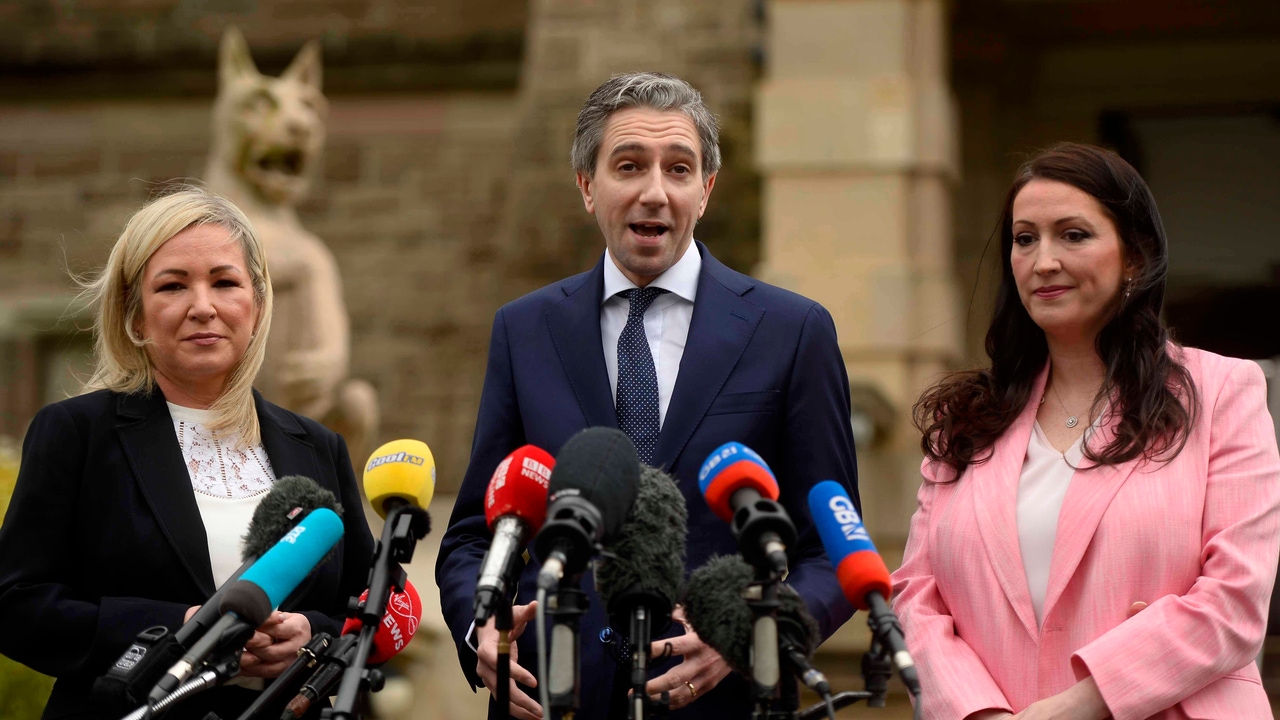The controversial Rwanda plan opens a diplomatic crisis between London and Dublin with migration as the protagonist. After the British government approved regulations – of questionable legality – to send asylum seekers who arrive in the UK via irregular routes to the African country, they are now crossing into the Republic of Ireland to avoid being deported. Irish Prime Minister, Simon Harriswho has just been appointed and needs to prove his worth on an issue that worries voters, is willing to send undocumented people back to London, repeating that he has no intention of letting the Celtic Tiger “provide a legal loophole for the immigration challenges of others.”
But his British counterpart Rishi SunakHe made it clear that “it is up to the UK government to decide who we accept and who we do not accept into the country.” This controversy has coincided with the local election campaign in England and the Downing Street tenant wants to turn around the electoral setback by ensuring that his controversial plan actually has the “deterrent effect” they were looking for. It was the Irish Minister of Justice herself, Helen McEnteeHe explained in the Dublin Parliament that 80% of the most recent asylum seekers arrived in the Republic from the British province of Northern Ireland. He stressed that so far this year, a “large majority of people” seeking asylum in Ireland had done so from an international protection office rather than from a port or airport, suggesting people were coming from the UK across the land border. .
Following the British exit from the bloc, the border between the Republic of Ireland and the British province of Northern Ireland is the only land division – along with Gibraltar – that now remains between the UK and the EU. To implement the 1998 Good Friday Agreement – which concluded peace between Catholics and Protestants in Ulster – these borders cannot, despite Brexit, impose physical controls on people. But the Irish executive is now facing a problem in its desire to return refugees to British territory. Since last March, the High Court in Dublin has ruled that the United Kingdom can no longer be considered a “safe third country for asylum seekers in this light.” The controversial policy of sending them to Rwanda.
In an attempt to close what it called a “legal loophole,” the Dublin executive is now addressing the new emergency law. The Irish government claims it has a post-Brexit agreement with the British government to return asylum seekers who have traveled to the Republic of Ireland from the UK. However, it specifies that due to the Covid pandemic and the recent Supreme Court ruling, the return agreement “was not effective.” For his part, a Downing Street spokesman acknowledged the existence of “executive agreements” between the two countries, but stressed that “there is no legal obligation to accept the return of asylum seekers.” Sunak himself told ITV: “We will not accept returns from the EU via Ireland when the EU will not accept returns to France, where illegal immigrants come from.” “Of course we won’t do that,” he added forcefully.
Irish opposition leader Mary Lou McDonaldSinn Féin accused the Dublin government of showing an “obscene” level of incompetence, ensuring that they were giving a “gift” to the British Conservative Party, “a party desperate for conflict with Europe, with Ireland, with anyone.” on the issue of immigration. After years of legal battles, Westminster last week finally approved a law under which anyone who “illegally enters the UK” after 1 January 2022 will be sent to Rwanda to have their applications processed there. If they succeed, they could be granted refugee status and allowed to remain in the African country. Otherwise, they can apply to settle in Rwanda for other reasons or seek asylum in another “safe third country”.
What they will not be able to do is request their return to the UK. The executive argues that the plan will discourage people from crossing the English Channel in small boats. Although the opposition and NGOs consider it “inhumane” and leading representatives of the Church of England say it is a disgrace.





:quality(85)/cloudfront-us-east-1.images.arcpublishing.com/infobae/3PMOUH64VBBEPF4II5MB2ZZFJA.jpg)